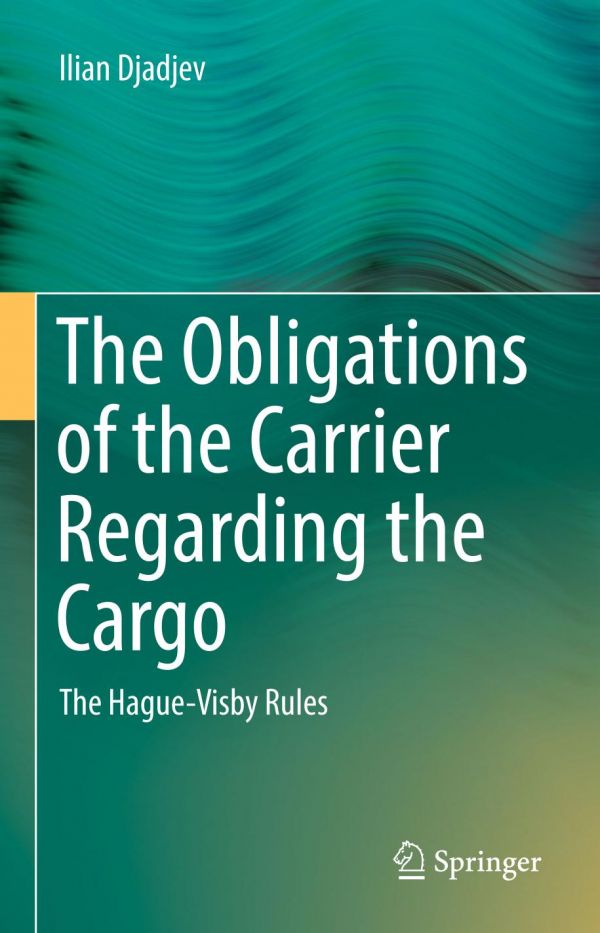Product desciption
The Obligations Of The Carrier Regarding The Cargo The Haguevisby Rules Djadjev by Djadjev, Ilian Nikolaev 9783319624396, 9783319624402, 3319624393, 3319624407 instant download after payment.
This book addresses the legal and contractual obligations of sea carriers regarding due care for the cargo under a contract of carriage. While the general framework employed is the leading international liability regime, the Hague-Visby Rules, the discussions in each chapter also account for the possible future adoption of a new regime, the Rotterdam Rules. The subject matter concerns the standard for the duty of care for goods as codified in the Hague-Visby Rules, but the work also touches upon a wide range of related topics found both in law and in practice, providing valuable commercial, technical and historical links as well as various solutions that have been found at the national and international level to address challenges arising in this specialised area of law. The book is divided into six chapters, which gradually reveal the complexity of the topic. Chapter 1 provides a thorough introduction to the two main transport documents in use, and to the basic logic behind shipping, sea-going trade and related national and international legislation. In turn, Chapter 2 presents an overview of the relevant provisions of the Hague-Visby Rules. Chapters 3, 4 and 5 examine the problems arising out of the insertion of a FIOS(T) clause in the contract of carriage; the carriage of goods on deck; and the carriage of goods in containers, respectively. Lastly, Chapter 6 provides an overall conclusion on the legal status quo and current practice, as well as future prospects. The book was written with a number of potential readers in mind and is intended to open up the topic to a broader audience. It is suitable both for readers who wish to advance their learning (e.g. professionals, practitioners and postgraduates) and for readers with little or no prior knowledge of the topic (e.g. students and researchers).
Abstract: This book addresses the legal and contractual obligations of sea carriers regarding due care for the cargo under a contract of carriage. While the general framework employed is the leading international liability regime, the Hague-Visby Rules, the discussions in each chapter also account for the possible future adoption of a new regime, the Rotterdam Rules. The subject matter concerns the standard for the duty of care for goods as codified in the Hague-Visby Rules, but the work also touches upon a wide range of related topics found both in law and in practice, providing valuable commercial, technical and historical links as well as various solutions that have been found at the national and international level to address challenges arising in this specialised area of law. The book is divided into six chapters, which gradually reveal the complexity of the topic. Chapter 1 provides a thorough introduction to the two main transport documents in use, and to the basic logic behind shipping, sea-going trade and related national and international legislation. In turn, Chapter 2 presents an overview of the relevant provisions of the Hague-Visby Rules. Chapters 3, 4 and 5 examine the problems arising out of the insertion of a FIOS(T) clause in the contract of carriage; the carriage of goods on deck; and the carriage of goods in containers, respectively. Lastly, Chapter 6 provides an overall conclusion on the legal status quo and current practice, as well as future prospects. The book was written with a number of potential readers in mind and is intended to open up the topic to a broader audience. It is suitable both for readers who wish to advance their learning (e.g. professionals, practitioners and postgraduates) and for readers with little or no prior knowledge of the topic (e.g. students and researchers)


